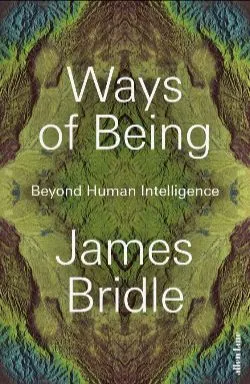
I know that some reviewers have offered a bit a skepticism towards Bridle’s anecdotes, but that doesn’t stop this from being an incredible book that really speaks to the Zeitgeist in an upbeat, hopeful way.
My first time reading Bridle was around 2018-19, when I read his New Dark Age: Technology and the End of the Future in grad school. That book was my first confrontation with some of the technological developments that have matured over the course of the past three years (especially AI). In fact, it blew my mind, especially his discussion of “black boxes” and the way that technology attempts to “see” the world.
Ways of Being feels like a natural continuation of that book. What started off as a discussion of how technology “sees” differently than the way we do has become an involved discussion of intelligence writ-large, ultimately challenging the assertion that “intelligence is what humans do.” To make his case, he enlists animals, plants, fungi, cybernetic systems, random chance, and even mold (yes, mold!) into his warm, fuzzy army.
Some of the chapters here blew my mind and really elicited the sense of wonder that I felt so frequently as a child but has been lacking in my adulthood. His discussion of ape spirituality did this more than anything else, but his anecdotes about plant communication, mirroring transportation networks with mold, and Stafford Beer’s hare-brained schemes to manage a factory without people did a lot of that same work.
The underlying message is that our anthropocentric worldview is limiting our technological innovations. We are forcing technology to engage in the same oppressive techniques that it has for centuries. However, this is not the only possible use of technology. If we could only expand our own understanding of intelligence and how it operates–perhaps, by looking at octopi, fungi, and random chance–we can actually build something much more powerful and productive.
The text really does seem to fit the spirit of the age, as left thinkers become more ecologically minded. This works really well in conversation with texts by authors like Donna Haraway, Timothy Morton, and the Degrowth school, as well as maybe the literature that engages closely with Deleuze more broadly (he doesn’t get a mention here, but I think Deleuze would be impressed Bridle’s work).
This was exactly what I needed to read right now. I have a tendency to become overwhelmed by rapid global changes; they’re directly affecting my life, as well as that of countless others. But, Bridle offers positive futures that we can strive for–he offers us hope, and this book was really meaningful to me.